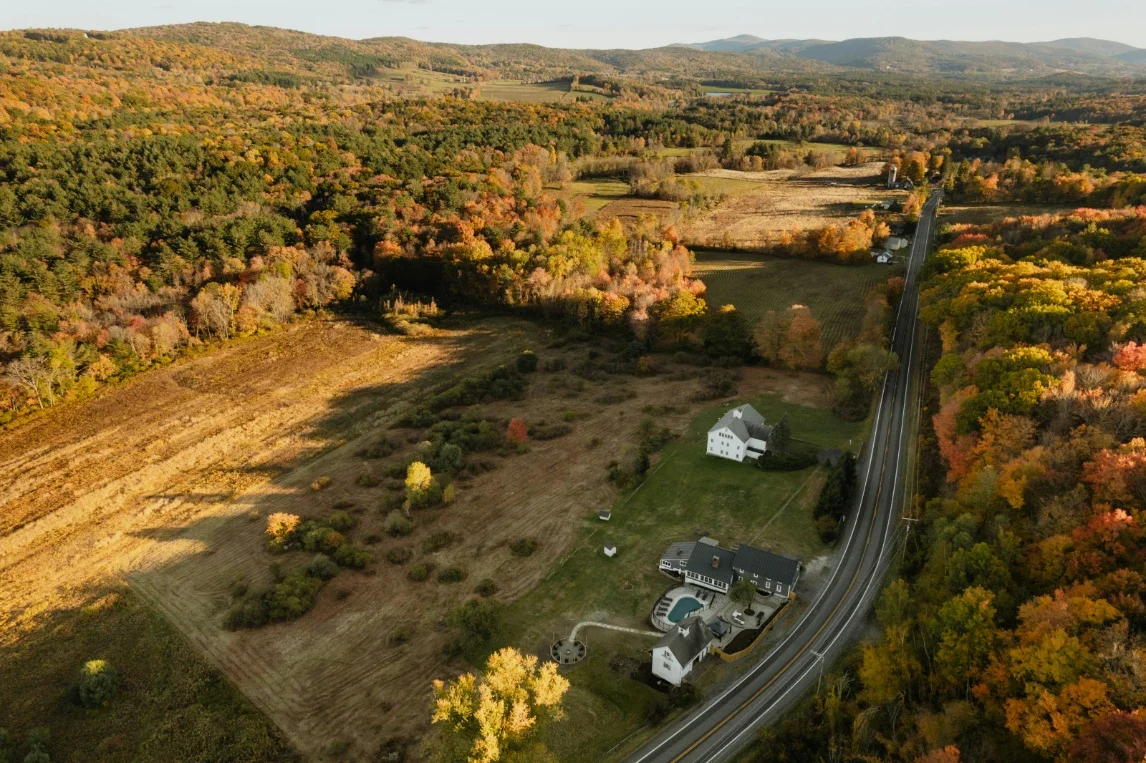Modern Land Ownership Strategies for Rural Property Buyers
Learn smart land ownership strategies for rural buyers, from zoning insights to investment tips that ensure long-term value and sustainable living.
Key Takeaways
Remote work has significantly boosted rural property demand and prices.
Flexible financing and leasing arrangements are making rural land more accessible.
Thorough research and due diligence are crucial for successful transactions.
Technology is streamlining property searches and enhancing transaction security.
Sustainable development is increasingly at the forefront of rural land use.
As the rural real estate market evolves, today’s buyers need strategies that keep pace with changing demographics, economies, and technologies. Driven by remote work opportunities and a growing appreciation for open spaces, more people are reconsidering the benefits of rural property. Partnering with experienced land professionals like the Iowa Land Company can help navigate these modern shifts, ensuring you capitalize on trends while avoiding common pitfalls.
Understanding the latest approaches to researching, financing, and developing rural land is essential. Buyers now have access to new digital tools, alternative financing models, and environmentally conscious practices that make land ownership both accessible and sustainable. Whether you aim to build a private retreat or invest for future generations, there are sound strategies available for every stage of the buying process.
Remote Work Fuels Demand for Rural Properties
With remote work becoming widespread, buyers prioritize space, tranquility, and natural landscapes. Since 2019, rural home prices grew 64%, outpacing urban areas' 42% increase. This migration increases competition for rural properties, making informed decisions essential. Buyers are not just purchasing land for vacations or investment; they are building homes, businesses, and seeking long-term lifestyles unavailable in city centers. Working with a reputable partner is crucial to finding properties that match your goals and values.
Innovative Financing Options Open New Doors
Traditional mortgages can be challenging to secure for rural undeveloped land, but several innovative approaches are bridging this gap. Seller financing allows buyers to bypass rigid lending requirements, as they can arrange payment schedules and terms directly with the landowners. Options like land contracts and lease-to-own agreements further broaden access, allowing buyers to use the land immediately while working toward full ownership. These methods open doors for those with limited upfront capital or unique use cases that don’t align with traditional lenders.
Due Diligence: A Critical Step in Land Acquisition
The due diligence process is arguably the most crucial phase of any rural land purchase. This involves verifying clear title ownership, understanding legal boundaries, existing easements, mineral and water rights, and environmental restrictions. Skipping these steps could result in costly legal complications or limitations on the use of the property. Engaging trusted professionals—such as surveyors, attorneys, and land consultants—can help ensure that nothing is overlooked, thereby protecting your investment and bringing peace of mind.
Technology Transforms Land Transactions
Digital innovation is transforming every aspect of the land-buying process. Online platforms now provide satellite imagery, soil classification data, historical land-use records, and drone footage—tools that enable buyers to evaluate properties from anywhere in the world. Blockchain, too, is beginning to make waves in real estate by reducing fraud and enabling faster, more transparent transactions. Virtual tours, online notarization, and secure e-signatures allow investors to complete deals remotely, further supporting the migration to rural areas.
Sustainable Development Practices Gain Traction
Modern buyers and developers increasingly prioritize sustainability in rural land use. Renewable energy systems, such as solar and wind, are being installed to reduce reliance on traditional utilities. Conservation efforts include preserving native habitats, restoring waterways, and limiting deforestation. Smart water management, use of eco-friendly building materials, and rotational grazing practices further protect the land and increase its long-term value. These efforts not only benefit the planet but can also reduce operating costs and appeal to future generations of environmentally conscious landowners.
Legal Considerations and Compliance
Regulatory requirements can vary significantly between counties and states, so understanding local zoning laws, building codes, and land use restrictions is crucial before making a purchase. Non-compliance may result in fines or limit your ability to improve or subdivide the land. Consultation with a local attorney or experienced real estate consultant will help you navigate the legal landscape and prevent unwanted surprises after closing. The U.S. Department of Agriculture provides extensive resources for understanding rural property regulations and programs to support buyers.
Building a Legacy for Future Generations
Rural land can foster lasting family legacies beyond short-term goals. Well-managed properties often appreciate, offering cherished spaces for gatherings and traditions. Planning—like conservation easements, resource management, and succession—ensures future benefits. Modern ownership requires a dynamic approach, utilizing new technology, alternative financing, thorough due diligence, and sustainability to secure resilient and valuable properties.
Conclusion
Rural land ownership today is more than a real estate investment—it’s a blend of lifestyle, sustainability, and long-term planning. From the rise of remote work to the integration of innovative financing, technology, and eco-conscious practices, buyers have more tools and opportunities than ever to shape their future on rural properties. By conducting thorough due diligence, staying mindful of legal requirements, and seeking guidance from trusted professionals, landowners can protect their investments while building spaces that endure for generations.


